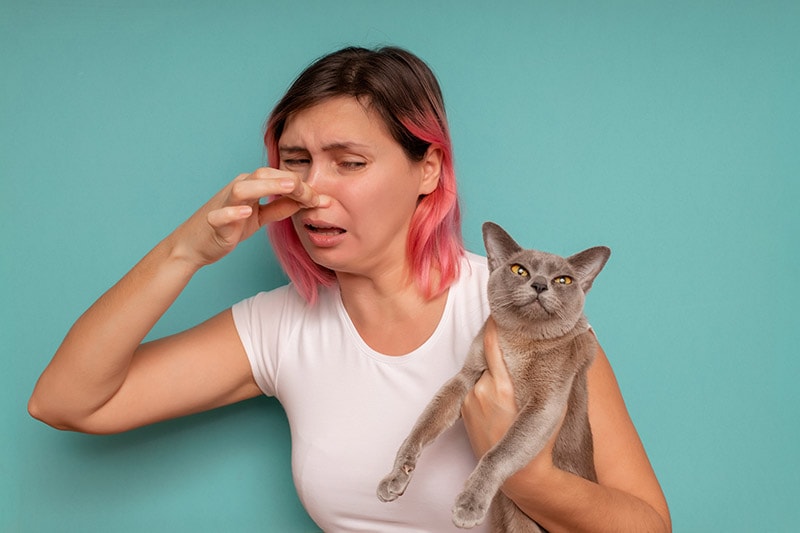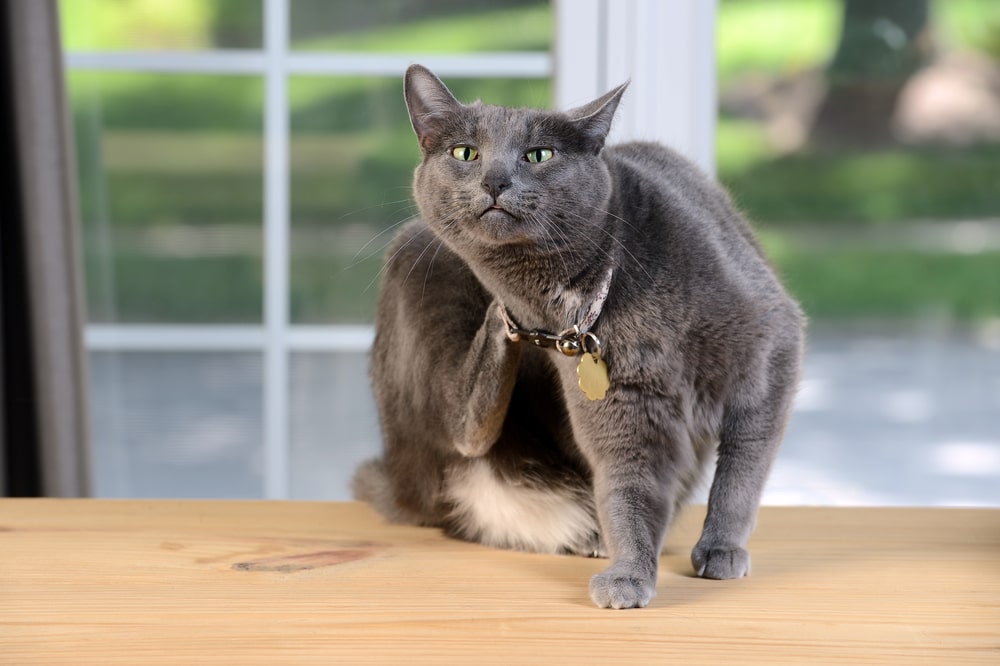Do Cats Vomit When They’re Stressed? Vet-Approved Facts

Updated on
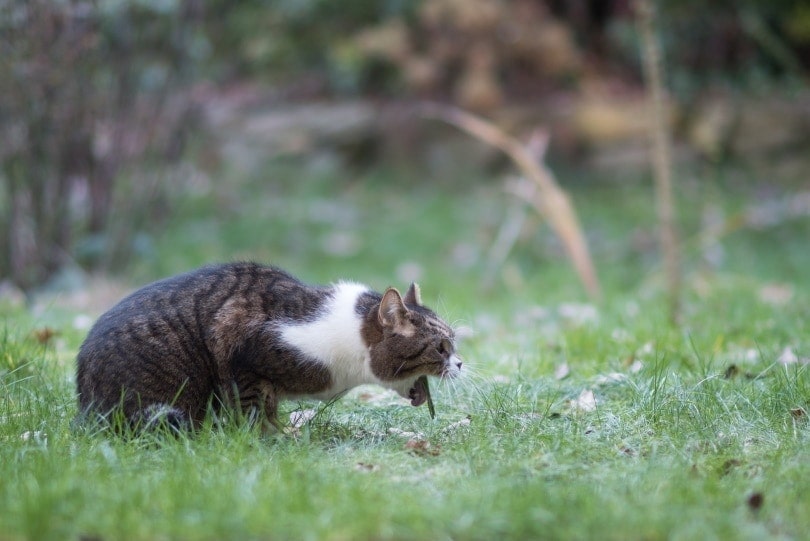
Cats can seem aloof and like they don’t have a care in the world but, in truth, they are sensitive animals, and even seemingly slight changes in their life and their surroundings can cause stress and anxiety that may manifest itself in different ways. Vomiting, retching, diarrhea, and a change in eating, toileting, and sleeping habits, are all potential signs of stress that owners need to be aware of.
Below, we look at cat vomiting causes, the effects of stress on our feline friends, and what actions you can take to help your cat overcome anxiety.
 Vomiting and Stress
Vomiting and Stress
In the wild, cats would attempt to mask any signs of stress and anxiety, because these would be viewed as weakness and might be exploited by potential predators. Although cats have been domesticated for several thousands of years, they do retain many of their wild characteristics, which means that it can be very difficult to diagnose when a cat is feeling anxious or stressed. Your cat certainly can’t use words to tell you that it is stressed, so it is down to you, as the owner, to identify symptoms.
Vomiting and diarrhea are two physiological symptoms of stress, although there are other possible causes of both of these symptoms.
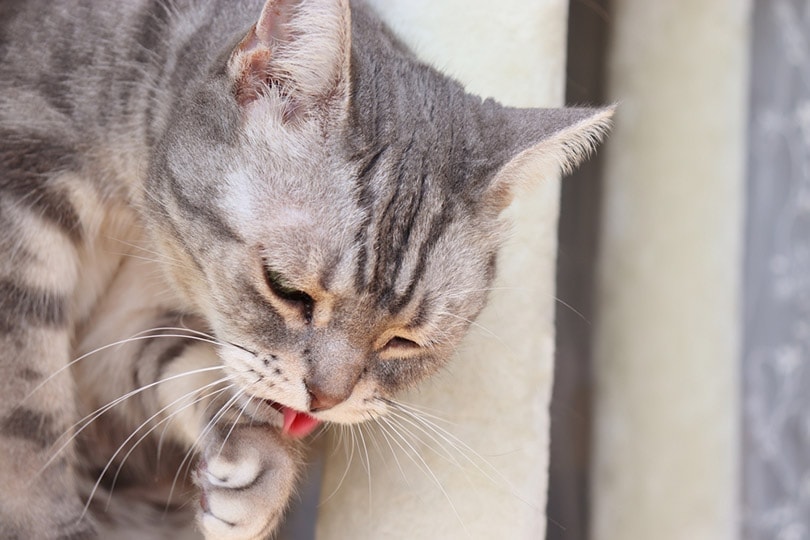
The 6 Other Signs Your Cat Is Stressed
Other possible symptoms and signs of stress include:
1. Change In Behavior
Some cats might become more aloof when stressed, while others might become more needy, and it is impossible to say which way your cat will go. You know your cat better than anybody else. If you notice their behavior and patterns changing, this could be a sign that something is stressing them out. If your outdoor cat suddenly isn’t interested in going out, it could be getting picked on by other cats in the neighborhood. If a cat that was previously uninterested in going out is suddenly spending hours, or even days, out of the house, something at home could be the cause of anxiety.
2. Inappropriate Elimination
Inappropriate elimination means peeing and pooping outside the litter tray and, assuming your cat was a tidy cat before, if they are suddenly going outside the litter box, it could be a cause for concern.
Antisocial behavior includes aggressive behavior such as clawing and biting, as well as hissing and growling. If your cat has suddenly become more aggressive, it could be caused by illness, it could be a sign that it is being mistreated, perhaps when out of the house, or it could be down to some other cause of stress.
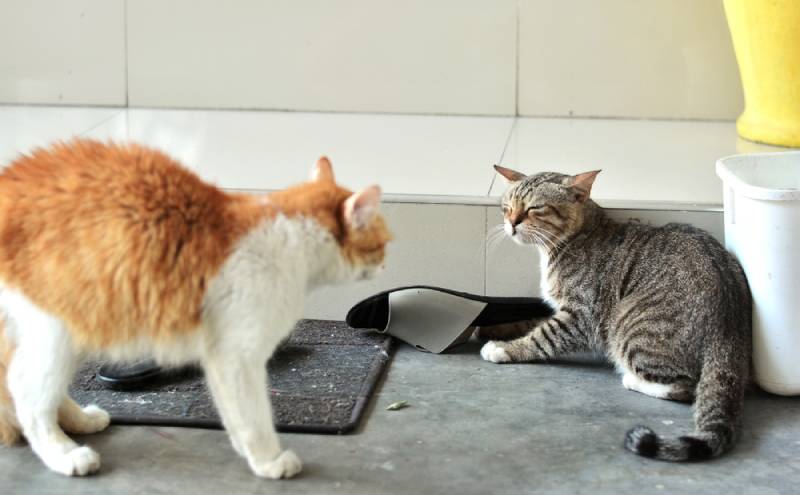
4. Destructive Behavior
Similarly, if your cat is suddenly chewing the curtains or scratching at wallpaper and carpets, there is some cause in this change of habit. Other destructive behavior might include knocking things off tables and chairs, or eating clothing.
5. Change In Eating Habits
Whether you leave food down for the cat to graze on, or you have a strict feeding schedule, look for signs that your cat is eating more or less than usual. They might be getting stressed specifically about their food or meals but general anxiety can also cause them to lose appetite.
6. Over-Grooming
One of the reasons that cats groom is to make themselves feel better. If they are suffering increased levels of stress and anxiety, this can lead to them over-grooming which, in turn, can cause problems with their coat and skin. Bald patches and sensitive spots may occur.
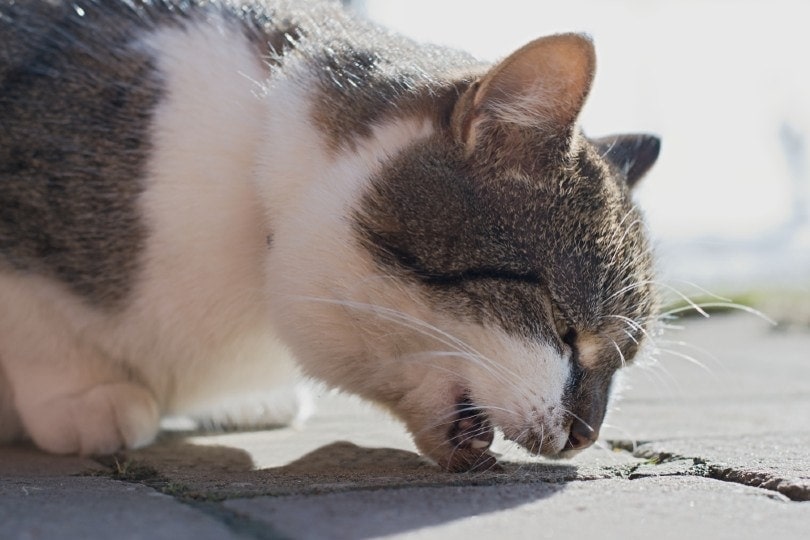
The 4 Causes of Stress In Cats
Cats are adaptable, but they are also anxious animals, and changes that seem small to us can be huge to our feline friends. Possible causes of stress include:
1. Change in Routine
Cats like routine. They like to know when you are leaving the house and when you’ll be returning, and they like to know when they be getting fed. If you change hours at work, or do anything that causes a change in your routine, this will likely have the knock-on effect of changing your cat’s routine, and this can cause stress. Try to make changes gradually to avoid too much stress.
2. A New Addition
Whether it’s a second cat, a new dog, or a baby, a new addition to the family unit can cause major anxiety for your cat. This is especially true because it means they are likely to get less of your attention following the arrival.
3. Temporary Changes at Home
If you have building work done or even if you’re undertaking a DIY job, the change to your cat’s environment and their habits, can elevate anxiety.
4. External Changes
Your cat’s environment isn’t necessarily just in your home. If you have an outdoor cat that is suffering anxiety, and there are no reasons in the home or family, it could be that they are being confronted by a new cat in the neighborhood, or their favorite spot may have been shut off to them.
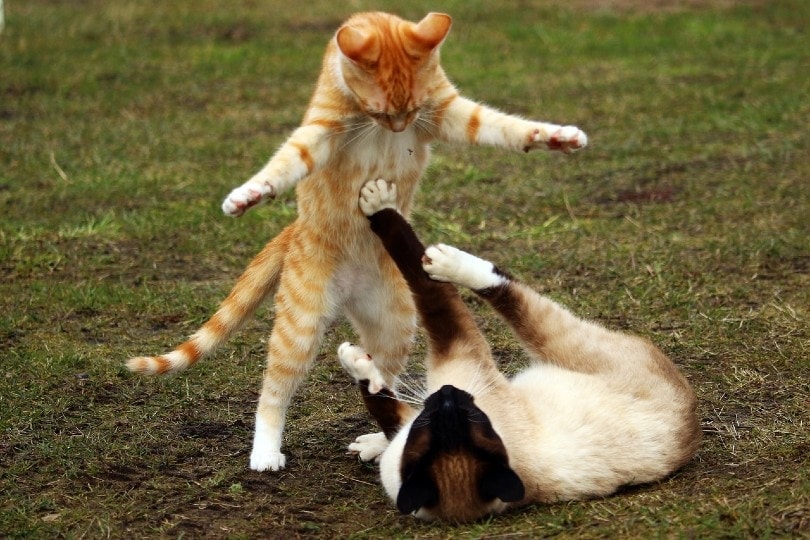
 Conclusion
Conclusion
Although cats are adaptable animals, they do like some degree of order to their lives, and the biggest cause of stress to our feline friends, is a change in environment or routine. Try to keep changes to a minimum and introduce new habits gradually. Ensure your cat has everything they need, that they are on a good diet, and, if you’re still concerned and your cat is still vomiting and showing other signs of stress, visit your vet to see if there’s anything they can do to help ensure your cat’s good health.
Featured Image Credit: Nils Jacobi, Shutterstock

 Vomiting and Stress
Vomiting and Stress
